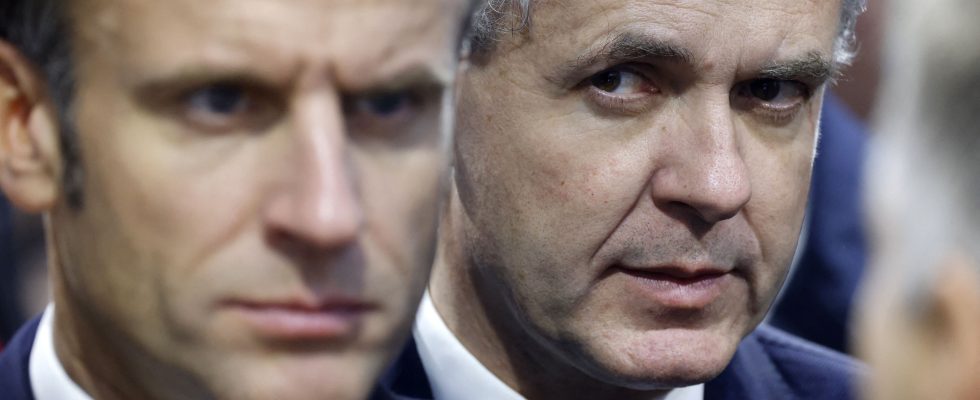It’s an iron rule. From political ecology, we mainly remember the symbols. The Grenelle de l’Environnement launched by Nicolas Sarkozy in 2007 created an event, minus the measures that came out of it. François Hollande’s five-year term suffered the same fate. The tears of Laurent Fabius during the presentation of the final agreement of COP21 or the destruction of the ecotax gantries in 2013 stand the test of time, less obscure decrees taken by the Ministry of the Environment.
Cruel paradox. Ecology is a fundamental issue at a time when the lights are red. But its political implementation is struggling to break through the sound barrier. The material is technical, therefore dry. Thermal renovation of housing, agri-food chain, transport… The subject involves multiple complex themes. “It’s techno,” sums up a minister. Emmanuel Macron knows how much this subject cannot be the monopoly of insiders, he who wants to leave an ecological imprint on his presidency.
The Head of State will unveil the ecological planning agenda on September 25, aiming to reduce greenhouse gas emissions by 50% by 2030. The Prime Minister revealed the main points this Monday morning, September 18 to the party leaders gathered at Matignon. The ecological transition budget will thus record an increase of seven billion euros in the next budget. “An abstract figure for the French, especially in the post-Covid era,” we concede to the government.
A “techno” subject
The Minister responsible for the Ecological Transition Christophe Béchu measures the equation of the executive. To abandon precision is to lose credibility. Being too technical means losing part of the public opinion. “In the presentation of this planning, the challenge is to assume this part of techno without which it is not credible in the eyes of the experts and to make it visible to the general public, he summarizes in private. How to be visible to the general public? It’s entering through objects and concrete things.” Such as this idea of social leasing, a system for renting an electric car for 100 euros per month for the most modest.
Little known to the general public, Christophe Béchu will take part in a Tour de France this fall. You have to sell your baby. He will speak to institutional actors – such as local authorities – responsible for implementing planning. But he also intends to discuss with citizens, including on more minor subjects which monopolize media space. Here, the wolf. There, the private jets. The idea is not to let these “irritants” veil the forest of measures prepared by the executive. The Dubai Conference in November (COP28) will finally be an opportunity to put the subject on the media agenda.
“Techno” ecology? Not for everybody. This is the positive effect of the Ministry of the Word: the oppositions manage to develop a political discourse devoid of technicality. The right storms against “punitive ecology” in every tax debate and poses as the guardian of our way of life. Even if it means caricaturing yourself. During the 2021 regional elections, several LR or RN candidates made hostility to wind turbines a major programmatic axis. The left sometimes oscillates between emblematic measures – the ban on private jets – and global discourse on the taxation of the richest. Ecology alternates here between symbol and gateway to a more global political offer.
“There remains a macronism of ecology to be invented”
Macronie – the self-proclaimed camp of reason and moderation – has the impression of being caught in a vice. “We are not on anecdotal subjects like golf or barbecue,” summarizes Elisabeth Borne in a small group. “There is a total tripartite on the issue: those who say that we are doing nothing, those who say that we are doing too much. And the government, between the two, which must be able to assume that this will not be done not with a snap of the fingers,” adds a minister.
Words have more force than austere bills. However, the executive has struggled to make its environmental doctrine legible for six years. The energy crisis and the yellow vests have impacted government work. The combined fight against the anxiety of the end of the month and that of the end of the world brings with it contradictions, so many obstacles to a clear discourse. “The symbolic measures have been confiscated by the extremists,” notes a minister from the left. “There remains a macronism of ecology to be invented, which is very difficult to bring to light in the French debate. We have taken various measures but we do not “did not benefit from it. We will not catch up with this image during this five-year term.” The September 25 window is in any case the last.
